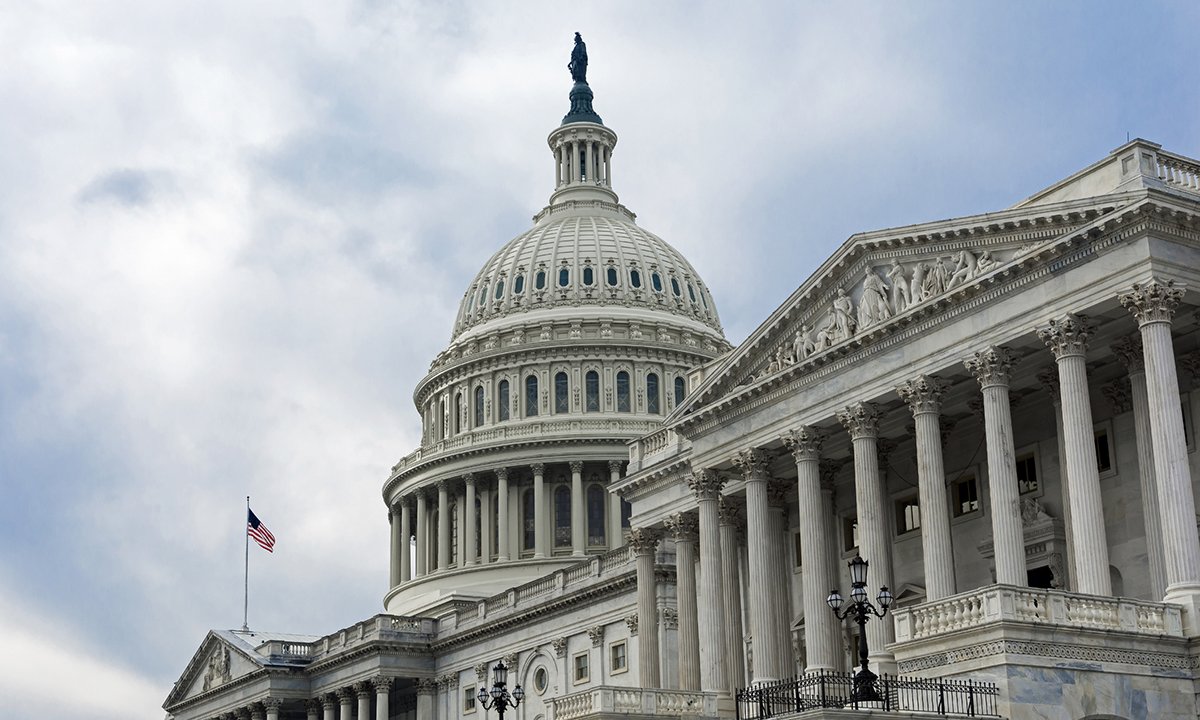Mentoring Is Declining Just When Young People Need It Most. Congress Can Help
Wills: The Mentoring to Succeed Act is an example of a bill that would give districts funding to offer students a key support for their mental health

Get stories like this delivered straight to your inbox. Sign up for The 74 Newsletter
The latest statistics from the Centers for Disease Control and Prevention are devastating: Nearly 60% of teenage girls report feelings of persistent sadness or hopelessness. Thirty percent said they seriously considered suicide. Among LGBQ+ youth, that number rises to almost 50%.
A critical aspect of addressing this youth mental health crisis is ensuring that young people feel a sense of belonging in the places where they spend their time. According to the CDC, when young people feel connected to adults and peers at school, they are significantly less likely to report persistent feelings of sadness or hopelessness or to consider or attempt suicide.
But with school staffers already stretched thin, it’s not feasible to simply ask them to solve yet another crisis alone. Education leaders and policymakers need to invest in programs that strengthen students’ connection to school without adding more to educators’ plates.
Mentorship and expanded capacity of schools to provide it are critical pieces to this puzzle. Young people want and need mentors to support them as they navigate mental well-being. In fact, today’s 18- to 21-year-olds express unmet mentoring needs around depression, anxiety and suicidality at more than double the rates for millennials, according to a new national survey from Mentor. They are also significantly more likely than 22- to- 24-year-olds to cite mental health challenges as the main area where a mentor could help.
Unfortunately, these relationships are in decline. While today’s young people are much more likely than their parents to have had a mentor growing up, according to the survey, members of Gen Z , those roughly 18 to 24 years old, are less likely (60%) than millennials (70%) to report having had such a supportive relationship.
Congress has the opportunity to help strengthen students’ connections to school by expanding school-based mentoring programs. The Mentoring to Succeed Act is just one example of a bill that would provide school districts with funding to match middle and high school students with mentors.
The bill would establish a five-year, competitive grant program, open to districts, local governments and community-based organizations, that provides federal funding to establish, expand or support school-based mentoring programs. Funds could be used to screen, match and train mentors; hire staff to support school-based programs; facilitate activities like field trips and career exploration and conduct program evaluations. The bill prioritizes funding for school districts that serve young people with the greatest needs — those living in high-poverty, high crime or rural areas.
While many schools have used federal COVID relief funds to increase mental health supports, this funding will run out within the next couple years. The Mentoring to Succeed Act would help schools sustain efforts to ensure students feel connected and supported by providing additional resources to support new programs and community partnerships, so educators and school administrators aren’t left to bear the weight of this work alone.
This type of investment has broad public support. Nearly 9 in 10 adults feel more mentoring is needed in this country, with more than 8 in 10 supporting the use of government funds to expand these opportunities.
While mentors cannot take the place of professional mental health providers, they can have meaningful positive impacts on young people’s well-being. For instance, a study that examined the Big Brothers/Big Sisters program model found that mentored youth reported significantly fewer behavioral problems and fewer symptoms of depression and social anxiety than those without mentors. The national survey conducted by Mentor also showed a correlation between mentorship and a stronger sense of belonging, in both childhood and adulthood.
Short of advocating for legislation, everyone can take steps to ensure more young people have meaningful adult connections. Many programs around the country need volunteers to serve as mentors — and many people already act as mentors without even realizing it. Those everyday mentors play a huge role in making sure young people have support.
The fact that mentoring is declining when young people need it most should concern all of us. At a time when many young people are struggling to find their footing, a healthy, supportive relationship with a mentor could go a long way toward helping them reach firmer ground.
Get stories like these delivered straight to your inbox. Sign up for The 74 Newsletter

;)
